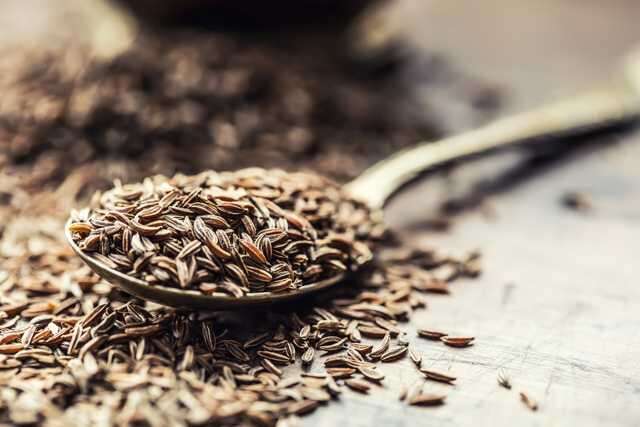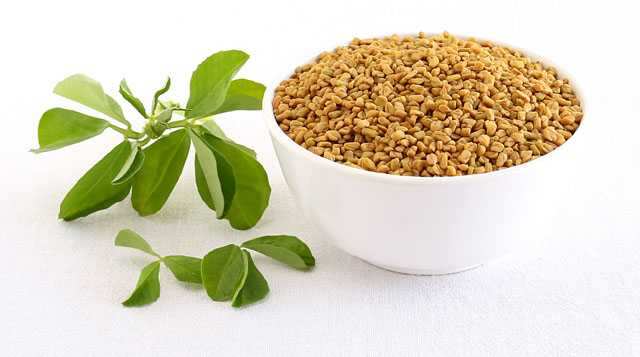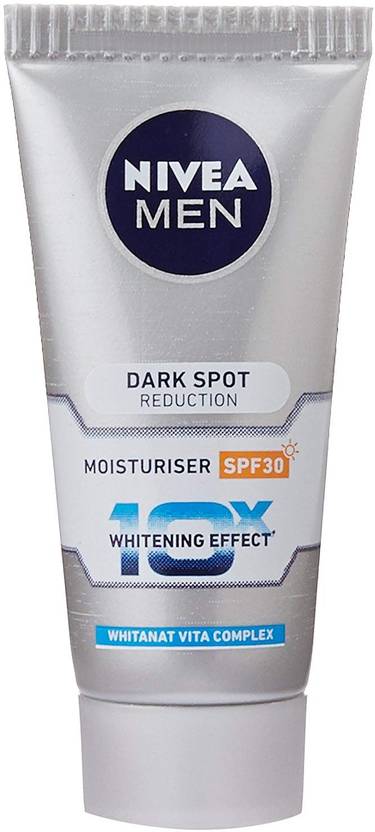Tips for Glowing skin in winter at home
·
Keep shower to shower time.
·
Avoid harmful soaps.
·
Start regular moisturizing.
·
Stay comfortable with clothing.
·
You want to stay free from winter
skin problems, by maintaining the good hygiene, get enough sleep, eat healthily
and do some exercises.
·
Stay free from stress by doing
exercise, meditation, and yoga
Home Remedies for Glowing Skin
You can use natural remedies for glowing skin that are simple and inexpensive.
1.
Facial
Cleaning:
To maintain
the glowing skin, you need to clean the face daily. This will help to keep your
skin smooth and free.
Cleanse your
face daily with a gentle cleanser, both in morning and night. For natural
cleansers, you can use rose water. Dip a cotton ball in a rose water and cleans
your skin gently.
2. Moisturizer:
Moisturizing
is important for Healthy and beautiful skin. Irrespective of skin type you need
use moisturizer.
The best time
to apply moisturizer is, after completing of your bath.
You can use
the coconut oil or olive oil as a natural moisturizer for your skin.
3.
Removing
of dead skin cells:
For removing of dead skin cells, oatmeal very
well.
·
Take 2 tablespoons of oatmeal in a
bowl.
·
Add 2 tablespoons of yogurt and tablespoon of honey
·
Mix the ingredients.
·
Apply the paste on your face and do
the gently massage using circular motion to scrub off the dead cells.
·
Let sit on your face for 10-15
minutes.
·
Again scrub off, and wash your skin
with cool water.
This
process should be done only once in a week, depending upon your skin.
4.
Lemon:
Lemon is
natural bleaching agent and helps to clean skin.
The citric
acid in lemon helps to reduce the dead skin cells. The vitamin C in it helps to
reduce the any kind of spots on your skin by increasing the cells renewal
process.
·
Apply fresh lemon juice on your
entire face and neck, as well as other exposed body parts. Allow it to sit for
10 minutes, then wash with warm water.
·
Another way squeezes out the lemon
juice and add 1 tablespoon of honey mix well. Apply it on your face and leave
it for 10-15 minutes and wash it.
You can
fallow this remedy 3 or 4 times in a week.
5. Turmeric
Turmeric is
also used for your skin, because of its having antioxidants that helps to fight
free-radical damage. Regular use of turmeric also can give you fair, glowing
and wrinkle-free skin.
·
Prepare a paste by mixing a equal
amount of turmeric powder with gram flour with little water or milk.
·
Apply it on your skin and leave on it
until it dries.
·
Wash it with warm water, scrubbing
your skin with circular motion.
·
Do this once a week.
6. Coconut Oil
Coconut oil
is very rich in antioxidants, this helps keep the skin well hydrated for a
longer duration.
·
Warm up some coconut oil.
·
Apply the warm oil on your face,
neck, hands, and legs.
·
Massage it into your skin for few
minutes, then let it deep into your skin for 10-15 minutes.
·
Wash it with warm water.
·
Use this remedy once daily.
7.
Oil
Pulling
Oil
pulling is inexpensive, harmless and easy to do.
·
Put 1 tablespoon of coconut oil in
your mouth.
·
Swish it around your mouth for about
20 minutes.
·
Spit it out, then brush your teeth.
·
Do this daily in the morning with
empty stomach.
8.
Rose
Water
Another remedy to add a beautiful
glow to skin is rose water. It helps to hydrate your skin. Rose water is
suitable for both dry as well as oily skin.
It works as a natural makeup remover.
·
Soak cotton pad in rose water.(you
can also add the little bit honey).
·
Apply it on your skin.
·
Leave it for 15 minutes.
·
Do this daily at night.
9. Vitamin C
To keep your skin healthy and
glowing, you need to make efforts to eat the right foods.
One important vitamin for skin is
vitamin C, a powerful antioxidant. It needed to maintain a strong immune
system.
Vitamin C is presents in many fruits
and vegetables like oranges, blueberries, papaya, strawberries, kiwi and sweet
potatoes.
Along with vitamin C, eat high healthy
fasts like nuts, avocados and seeds to gain glowing skin.
10.Fluids
Dehydrate skin is dry and wrinkly and
it can the glow out of our skin. So, it is important to well hydrate your body.
Drink more fluids
·
Drink at least 8-10 glasses of water
in daily.
·
Drink a few cups of herbal teas like
green tea, ginger tea, peppermint tea and others.
Tips for Glowing Skin
Ø
Sleep 7 to 8 hours daily.
Ø
Avoid your stress levels as much as
possible.
Ø
Always cleanse your skin before going
to bed.
Ø
Avoid washing your face more than
three times a day.
Ø
Apply sunscreen every day to protect
skin from sun.
TYPES OF COUGH
Mostly there
are 2 types of coughs:
1. Dry cough
2. Wet cough
1.Dry cough:
It is a cough. A dry cough is having
an itchy sensation at throat. There are
some home remedies
for reducing the dry cough take 10 black pepper corns and
boil them in a glass of water. Boil the water till it reduces to half glass.
Filter the pepper corns, mix the half tea spoon of honey and take the small
sips it will decrease the cough within two days.
2.Wet cough:
It is one in which mucus builds up
in the chest. If you have a wet cough, you may feel tightness in your chest and
you may hear a wheezing sound when breathing. This mucus build up is difficult
to get rid of coughing.
How to cure cough fast at home
What is cough?
Cough is a disturbance at throat, passing of air form lungs. In general, the
cough that lasts for less than three weeks.
Facts on coughs
Here some points about the cough.
1. Some coughs are spread to new one.
2. Some types of coughs only occur at
night.
3. If the cough is difficult to reduce, a chest
X-ray may be necessary.
4. Home remedies can reduce the coughs.
Causes
The most of coughs are caused by viruses and cleared without treatment.
In most of cases, the infection is in the upper respiratory tract and
affects the throat, this is known as Upper Respiratory Infection. Some Example
· Flu and
· Common cold
If it is an Lower Respiratory Tract Infection, the lungs are effected.
Example includes:
· Bronchitis and
· Pneumonia
SYMPTOMS :
A cough may
occur with signs and symptoms, which includes:
- · A runny nose
- · Liquid running down the back of your throat
- · Wheezing and shortness of breathing
- · Heart burn
- · In rare case coughing with blood
When to be conduct the doctor :
If the cough
is more than 3 weeks we need to contact with doctor.
Other reason
to see medical advice:
- · The cough is getting continuously
- · There are swelling at neck
- · Weight loss
- · Difficulty to swallow
- · Changes in sound of the voice
- · Coughing with blood
- · Difficult to breath
- · Heart burn/Chest pain
HOME REMEDIES FOR COUGH :
- · Mix 2 teaspoons of honey with warm water. Drink this mixture once or twice a day.
- · Stir the half spoon of salt into cup of warm water until it dissolves it. Let the mixture sit at the back of the throat for a few moments before spitting it out.
- · Ginger may ease an asthmatic cough. It relieves from pain.
- · Take 1 glass of boiled milk and add the pinch of turmeric, two to three crushed pepper balls and drink it at early morning for two to three days
Health Tests Every Woman

 Staying healthy is not the most difficult thing you’ll ever do, but it does take some effort and vigilance. One part of that effort is getting appropriate screening tests, which are used to detect potential health problems when they’re still treatable.
Staying healthy is not the most difficult thing you’ll ever do, but it does take some effort and vigilance. One part of that effort is getting appropriate screening tests, which are used to detect potential health problems when they’re still treatable.
The screening tests you’ll need will change as you age. Once you start a test, it will likely be required periodically for the rest of your life.
Pelvic exam and Pap smear
Regardless of sexual history, women aged 21 and older should have a Pap smear every three years. The Pap smear looks for signs of cervical cancer. Your doctor may let you have smears more infrequently after three consecutive normal Pap tests. This interval can also be extended in older women with a negative HPV test.
Women should also be tested for sexually transmitted diseases (STDs) based on individual risk factors and age recommendations.
Screening for breast cancer
Breast cancer screening consists of clinical exams and screening mammograms. If you have family members with breast cancer, your doctor will screen you to see if you are at risk for more dangerous types of breast cancer that are linked to certain genes (BRCA1 or BRCA 2). If you’re at risk, your doctor may recommend genetic counseling or BRCA testing.
Physical exam
You should have two physicals during your 20s. At each exam, your doctor should perform a careful head-to-toe assessment and check your:
- height
- weight
- body mass index (BMI)
Your doctor may also ask you questions about:
- depression
- alcohol and drug use
- smoking
- diet and exercise
- vaccination history
- intimate partner violence
Cholesterol test
Women aged 20 and older should get a baseline screening for cholesterol levels and triglycerides if they are at risk for coronary heart disease. The American Heart Associationrecommends women get checked every four to six years, starting at age 20. After age 45, screening for cholesterol becomes important, as heart disease risk increases with age.
Blood pressure screening
A diagnosis of hypertension, or high blood pressure, is made if your blood pressure is higher than 140/90. Because high blood pressure can lead to other complications, it should be checked every two years if it’s 120/80 or under. If it’s higher, your doctor may recommend having it checked more often. If you are diagnosed with high blood pressure, you should also be screened for diabetes.
Eye exam
Get vision screenings every other year if you wear contacts or glasses. If you don’t have vision problems, screening may not be necessary. However, you should see an eye doctor if you have any concerns.
Dental exam
You should visit the dentist every year for an exam and cleaning.
Immunizations
You should get a flu vaccine every year, especially if you are over the age of 65 or have risk factors that make you more susceptible to infection.
You should get one tetanus-diphtheria booster every 10 years, starting sometime after age 19.
If you are younger than 26, you should consider the HPV vaccine.
If you have never had chickenpox, you should get the varicella vaccine.
The tests you began in your 20s will still be used in your 40s, though the timing of the exams will change. You should:
- have an eye exam every two years, even if you don’t wear glasses
- have physical exams every one to five years
- get a professional breast exam every year
- consider getting a shingles vaccine after the age of 60
You will also need several new tests starting in your 40s.
Mammogram
All women should have a mammography to screen for breast cancer. How often you seek treatment varies by age. The U.S. Preventive Services Task Force recommends mammograms every other year for women between 50 and 74 years old. Women younger than age 50 should work with their doctors to determine how often to have a mammography.
For women over age 75, there is no recommendation because not enough research has been done on the impacts of mammography on women in this age group.
Breast exam
Starting in your 40s, your healthcare provider will perform yearly breast exams. They will visually and manually check your breasts for differences in size or shape, rashes and dimpling, and lumps. They may also check to see if your nipples produce fluid when gently squeezed.
You should be aware of how your breasts look and feel and report any changes to your physician.
Colon cancer screening
Once you turn 50, you should start being screened for colon cancer. Possible tests include a:
- yearly stool test
- flexible sigmoidoscopy (every five years)
- colonoscopy (every 10 years)
- double-contrast barium enema (every five years)
- computed tomographic colonoscopy (every five years)
You may need screening more often if you are at high risk of colon cancer. You should be screened for this until age 75.
Skin checks
According to the American Cancer Society, about 3.3 million Americans are diagnosed with skin cancer each year. To catch it early, check yourself once a month starting at age 18 by looking for new or suspicious moles. Screenings by a medical professional are based on a patient’s risk factors.
These risk factors may include:
- significant sun exposure
- family history of skin cancer
- fair skin
- the presence of multiple unusual moles
- a history of several blistering sun burns, especially early in life
Timing for screening tests continues to change as you grow older. For example, your blood pressure should now be checked yearly.
Your cholesterol should be checked every three to five years, or more often if it’s abnormal.
Bone density test
Women age 65 and older should be screened for osteoporosis. If you have ever had a fracture, you should have a bone density test once you go through menopause. You should also have this test if you are under 65 and have high fracture risk.
Hearing test
An audiogram is a check of your hearing at various pitches and intensity levels. You may need one once a year.
This is a series of two vaccines, administered a year apart. It is recommended that people over age 65 get vaccinated against pneumonia.
Based on your health, your doctor may order other screening tests to supplement the standard age-based tests.
Depression screening
The National Alliance on Mental Illness estimates that 16 million American adults had at least one major depressive episode in the last year. They add that women are 70 percent more likely than men to experience depression. If you’re concerned about your mood, ask your doctor for this screening. Your doctor will ask questions about symptoms, such as:
- sleep troubles
- irritability
- loss of libido or sexual interest
- sluggishness
- loss of interest in usual activities
Diabetes test
If you are at high risk of diabetes, you may need to be screened for prediabetes and diabetes every three years starting in your 40s. If your blood pressure is over 135/80 or you have high cholesterol levels your doctor may screen you for type 2 diabetes.
Diabetes risk factors include:
- physical inactivity
- severe obesity
- having a first-degree relative with diabetes
- being African-American, Mexican-American, American Indian, Native Hawaiian, Pacific Islander, or Asian-American
Effective home remedies to treat food poisoning


Feasting on street food may sometimes result in food poisoning. Rather than immediately rushing to your doctor, raid your kitchen in order to start your treatment at home.
Garlic


It’s antiviral, antibacterial and antifungal properties provide relief from symptoms such as diarrhoea and abdominal pain. Suck on a fresh garlic clove and follow it up a glass of warm water. Alternatively, you could boil some water along with a few garlic cloves and sip on it through the day.
Lemon water


Lemon helps get rid of the bacteria playing havoc in your stomach, thanks to its acidic properties. In order to cleanse your digestive system, add a pinch of sugar to a teaspoon of lemon juice and drink this solution two to three times a day. You could also squeeze the juice of one whole lemon into a glass of warm water and drink it through the day.
Apple cider vinegar (ACV)


The acids in apple cider vinegar can help soothe inflammation along the gastrointestinal lining, providing immediate relief. Mix two tablespoons of ACV with a glass of hot water and drink before eating.
Basil


This herb is known to provide relief from any abdominal discomfort, including food poisoning. Besides, its anti-microbial properties help get rid of any bacteria or micro-organisms in the tummy. Boil a handful of fresh basil leaves along with two to three cups of water. Once it cools, add some honey and sip on this through the day. You could also add a few fresh basil leaves to a bowl of plain yoghurt for an instant dose of taste.
Cumin seeds


Cumin seeds or jeera ease discomfort and inflammation caused by food poisoning. You can chew on some jeera throughout the day, or prepare this herbal drink. Boil one teaspoon of cumin seeds in one cup of water. You could either add a teaspoon of coriander juice and a little salt to this herbal drink or try preparing it using asafoetida and salt. Drink it twice a day to cleanse your system.
Honey


Known for its antibacterial and antifungal properties, honey helps to cure indigestion along with the other symptoms of food poisoning. Relish a teaspoon of organic honey thrice a day to control the formation of excess acid, which in turn will help heal your upset stomach.
Bananas

On account of diarrhoea and vomiting, you may lose out on potassium. Consuming a ripe banana will help maintain the potassium levels, thereby restoring the lost energy. You can also make a banana shake by blending two bananas with a cup of milk that has been boiled and cooled. Add a pinch of cinnamon to this shake and consume it thrice a day.
Yoghurt and fenugreek seeds

The antimicrobial and antibacterial properties in yoghurt help fight the bacteria causing food poisoning. Fenugreek seeds treat abdominal discomfort. Soak a teaspoon of fenugreek seeds until they soften. Consume these seeds followed by a teaspoon of yoghurt. Repeat this at regular intervals throughout the day.
Orange juice

Fresh orange juice is rich in minerals, vitamins and nutrients that help restore your body’s blood pressure levels within the normal range. Blend six to seven medium-sized oranges in a blender and add two tablespoons of corn starch syrup. Drink this juice several times a day for instant relief.
Subscribe to:
Comments (Atom)


